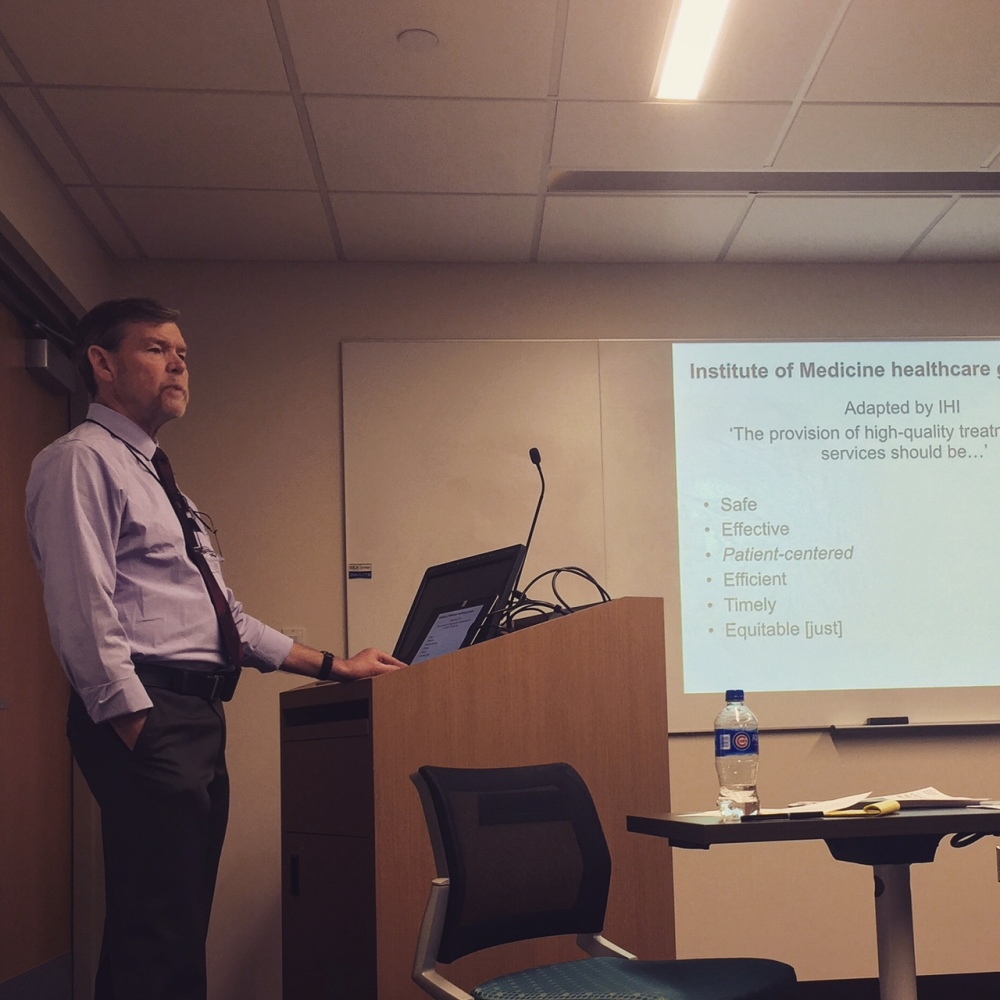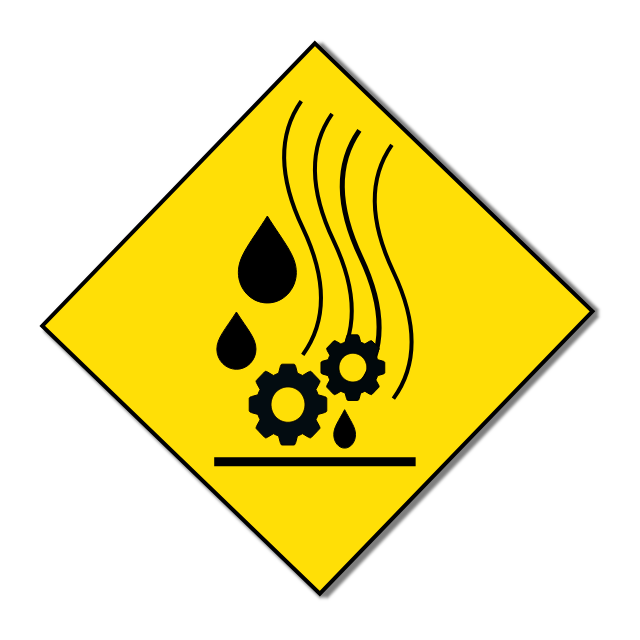Each summer, our department begins a monumental task of transitioning staff members. There is always staff departing, new staff starting; but we spend the most time and effort on the next generation of anesthesia practitioners. At an academic institution, the summer months mean that some of our graduating fellows and residents will move out into the world, while we usher in the next class.
Dr. David Papworth [Clinical Associate Professor], has headed up the department’s efforts in applied clinical safety and quality initiatives for more than a decade, and combined with his 30+ years of practicing medicine in several continents, his experience are especially valuable in our training efforts. Dr. Papworth gave me the opportunity to sit in on the portion of the training he provides to our new interns as they begin their education with us.

The four-hour seminar focused on several modules relating to what quality and safety mean to us, how it is considered and who is responsible for it, and how to be a human providing care in a very difficult setting. In recent months our department has recognized a need for the last part, and began the department Wellness Committee, to me I found this area most interesting. I’ve studied improvement science and social theory for years, but I rarely have thought about how our staff handle the emotional conflicts they face each day.
In practicing quality improvement, we focus on the classic mantra of “better, faster, cheaper,” and sometimes lose sight of the people doing the work. People are the single most important resource we have. Providing patient care can be stressful and exhausting when you consider the when/how/where many of our staff members perform their roles. Unfortunately, there is a lasting impact on us a people too. While the patients get better and go home, often we move on to the next and the next after that; and relinquish those lasting impacts on individuals to handle alone. Paraphrasing Dr. Papworth, “those moments and people stay with you for days afterwards and sometimes the nights between those days.”
- Don’t underestimate the value of your people
- Don’t minimize the effect of clinical care on the care provider
How can you care for the patient, if you can’t care for the care-giver? It’s a serious question that we are faced with in health care. With the advent of technology and evolving practices of care, we can do more and care for more dire patients than ever before. But as the shortage of physicians and nurses continues to impact the industry, we ask our staff members to work long, handle more cases, and be more involved throughout longer cases, we have to consider the effect it has on our people. Our people are the single most important resource we have.
